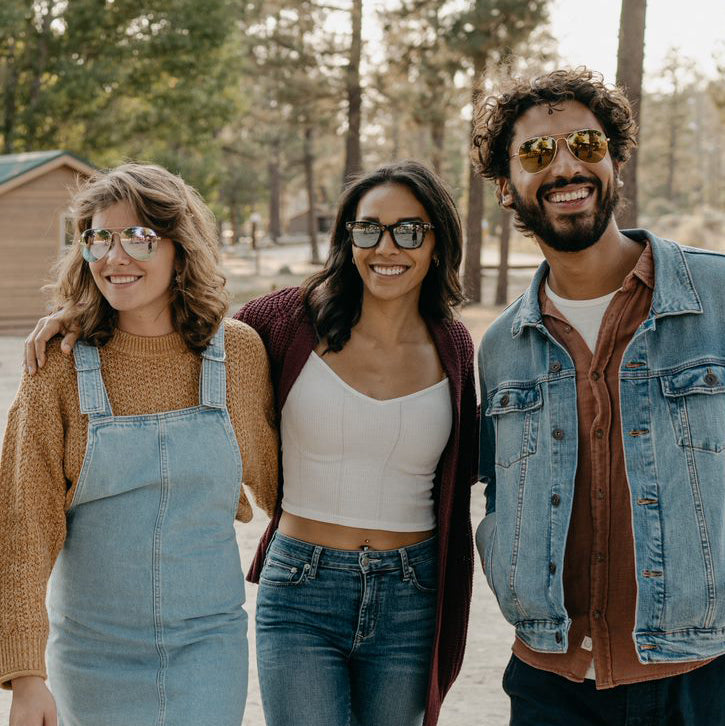
Photo credit: Flamingo Images / Adobe Stock
The Magic of Prolonged Eye Contact
February 13, 2019
If you’ve ever experienced a physical and emotional rush that feels nothing short of magical when making eye contact with someone, you’re not alone. Scholars have much to say about the importance of eye contact between humans—especially when it’s prolonged. Beginning with babies, eye contact can signal love and security, and is one of the most fundamental components of human connection. If you’re wondering what prolonged eye contact means from a man to a woman, or between any set of potential lovers, here’s what we’ve learned about the magic of the mutual gaze and how you might ignite it yourself.
Signals Trust
What does eye contact mean to a guy or girl you like? Perhaps that you’re trustworthy. Researchers have found that in social situations eye contact signals connection and trust, and it mostly comes down to the pupils. If the pupils of the beholder dilate, which is a sign of attraction, the person in view is felt to be more trustworthy. But if they constrict, which is generally what happens in someone who is afraid or feels threatened, then they are most often deemed less trustworthy.
Shows Interest and Empathy
See someone you like at the beach or party and want to chat them up? Resist the urge to look at your phone, which has been shown to threaten conversation. You don’t even have to take off your sunglasses—just letting them slide down your nose and zeroing in someone can communicate your interest effectively. MIT professor Sherry Turkle told The New York Times that there has been a 40 percent decline in empathy due to screen use. “Stop Googling. Let’s Talk,” she wrote. Prolonged eye contact is a good place to start. Researchers have found that most people in conversation give eye contact anywhere from 30 to 60 percent of the time, but couples who are in love look at each other 75 percent of the time when talking. They’re also far slower to break eye contact when interrupted.
Creates Intimacy
A Japanese study published in the journal Neuroimage found that eye contact synchronizes brain activity between two people. Making eye contact bound participants into a “singular connected system,” in which synchronized blinking led to shared attention, or feeling more in sync with each other. Another study showed that strangers who were asked to stare into each other's eyes for two uninterrupted minutes reported: “increased feelings of passionate love for each other” as well as increased likability.
Slows the Passage of Time
One of the most magical (or eerie) things about prolonged eye contact is its ability to seemingly slow down time. Italian researcher Giovanni Caputo tested 20 adults on the psychological effects of prolonged eye contact. He discovered that after 10 minutes of staring deeply into each other’s eyes, participants felt as though time slowed down. This same magical effect was confirmed in a separate study, especially when eye contact happened during arousing events.
Increases Self-Awareness
One of the surprising discoveries you might make about prolonged eye contact is what it can reveal about yourself. When New York Times columnist Mandy Len Catron attempted prolonged eye contact with her date for four minutes, she wrote "the real crux of the moment was not just that I was really seeing someone, but that I was seeing someone really seeing me. I felt brave, and in a state of wonder.” And that sense of wonder might just be better than magic.
Just Don’t Go Too Far
As magical as prolonged eye contact can be, it can also enter the territory of creeping you out. In the Italian study cited above, participants (an overwhelming 90 percent) saw deformed facial traits in their eye-gazing partner, and 75 percent saw a monster. Michigan State University suggests using the 50/70 rule. Maintain eye contact for 50 percent of the time while speaking and 70 percent of the time while listening. This helps to display both interest and confidence.
Written by Erica Garza for Knockaround





5 Fun Ways to Work on Your Summer Body
A Brief History of Sunglasses